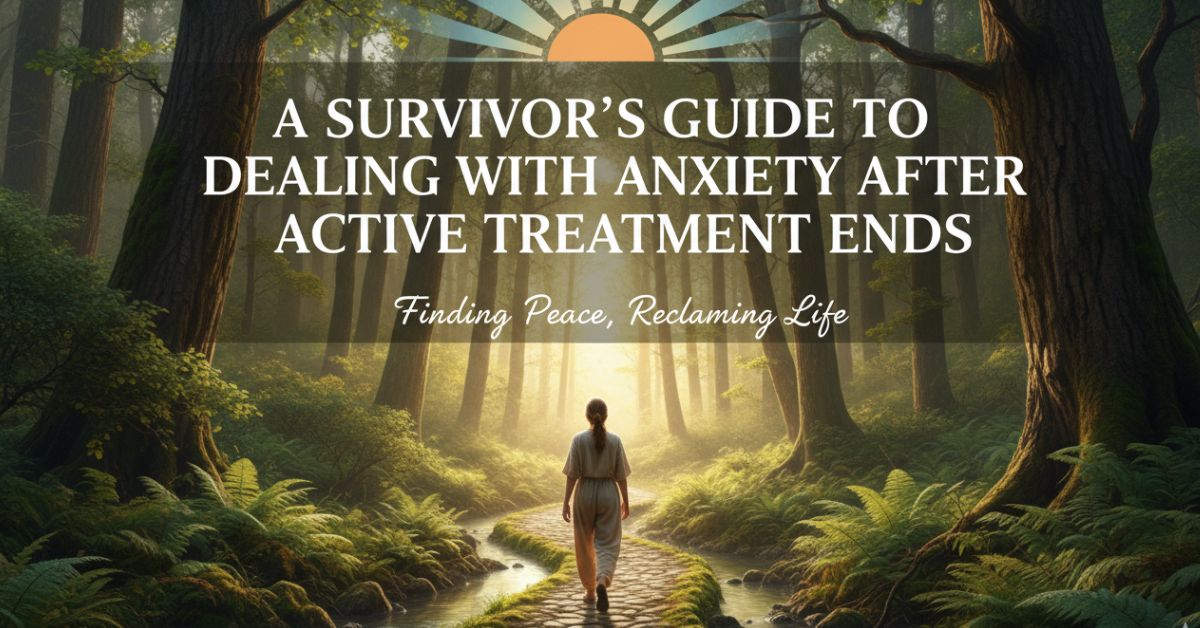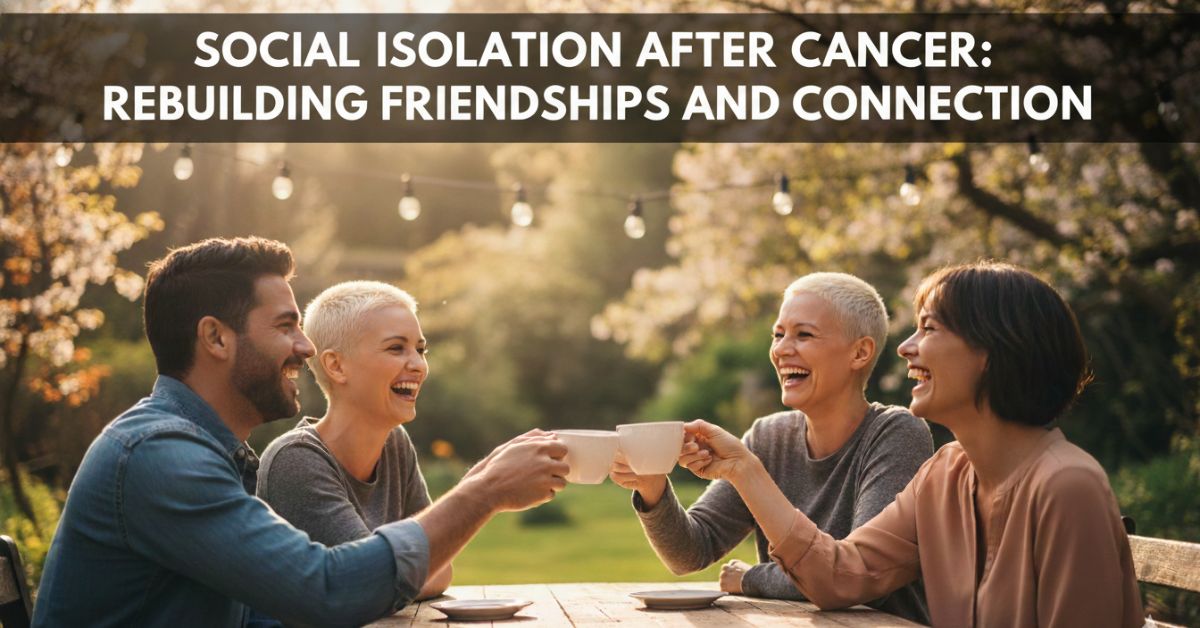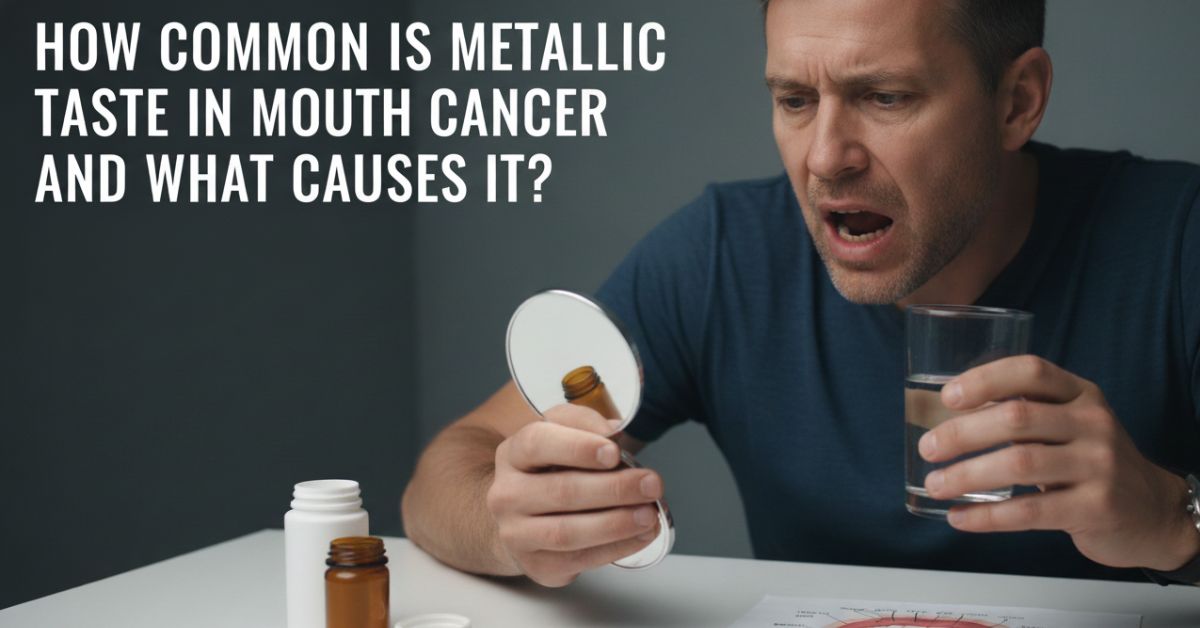Finishing cancer treatment is a huge milestone. But for many patients, it doesn’t mean life suddenly feels normal. Anxiety after cancer treatment is common. Even when the cancer is gone, the worry can remain. Many survivors feel uncertain, uneasy, or tense. Understanding why anxiety happens and how to manage it can make life after treatment more manageable.
Why Anxiety Happens After Treatment?

Many people experience post cancer anxiety. The treatments themselves are over, but the fear of recurrence can linger. Health anxiety about cancer often comes from the uncertainty about the future. You may worry about scans, follow-ups, or new symptoms. Daily life can feel fragile, and the shift from being “in treatment” to “in recovery” can be hard.
Your body and mind are adjusting. You may have relied on routines set by your treatment schedule. Now that those routines are gone, it can feel disorienting. Cancer survivor anxiety often comes from this sudden freedom paired with ongoing uncertainty. It’s normal, even if it feels overwhelming.
Recognising Post-Treatment Anxiety Symptoms
Post-treatment anxiety symptoms can show up in many ways. You might have trouble sleeping or experience frequent nightmares. Racing thoughts or constant worry can make it hard to focus on daily tasks. Some people notice irritability or mood swings, while others experience physical symptoms like tension, headaches, or a rapid heartbeat.
It’s also common to avoid follow-up appointments or social situations because of anxiety. These signs can be easy to overlook since life may seem back to normal on the outside. But internally, anxiety can remain persistent. Paying attention to these symptoms early can help you manage them before they start affecting your daily life.
Simple Ways to Manage Anxiety on Your Own
There are practical steps you can take to reduce post cancer anxiety.
- Practice mindfulness and breathing exercises for a few minutes each day to calm your nervous system.
- Write down worries in a journal to process your thoughts and make them feel more manageable.
- Engage in physical activity like walking, stretching, or light exercise to release tension and improve mood.
- Establish a structured daily routine to create a sense of control and predictability.
- Focus on building small, consistent habits rather than trying to fix everything at once.
- Gradually, these strategies can help reduce cancer survivor anxiety and make life after treatment easier to manage.
Knowing When to Get Professional Help
Sometimes anxiety after cancer treatment is more than daily worry. Signs that professional help might be needed include:
- Persistent worry that affects daily life
- Panic attacks or overwhelming fear
- Difficulty sleeping or concentrating
Therapists, counsellors, and support groups can provide guidance. Cognitive-behavioural therapy (CBT) is particularly helpful for health anxiety about cancer. Some people may also benefit from medication prescribed by a doctor. Seeking help is normal. It doesn’t mean you’re weak.
Building a Support System That Works
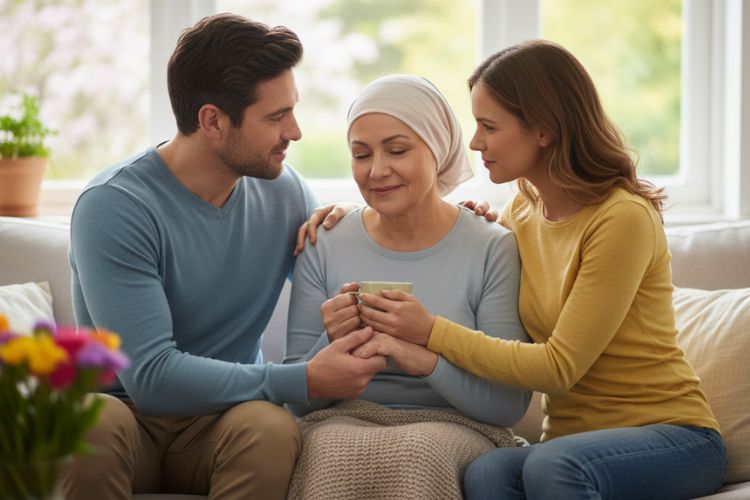
A strong support system can ease cancer survivor anxiety. Friends, family, and survivor networks can help. Sharing feelings with someone who understands makes a difference.
If you want to support someone with cancer, start by listening without judgment. Encourage them to talk about their fears and experiences. Being present can reduce feelings of isolation.
Online and local support groups are also helpful. Talking with people who’ve been through similar experiences can normalise anxiety and provide practical tips.
Dealing With Anxiety Before Checkups
Many survivors experience scanxiety. This is the fear and tension before follow-up tests. It’s normal to feel nervous about results or appointments.
One way to manage this stress is to bring a support person with you to appointments. Writing down your questions in advance can help you feel more prepared. You can also practice relaxation exercises beforehand to calm your mind. Try to focus on what you can control rather than what you can’t. These small steps can make your anxiety feel more manageable and help reduce the intensity of post-treatment anxiety symptoms during medical visits.
Adjusting to Life After Treatment
Some people find it difficult to transition to everyday life. You may be struggling with life after cancer. The structure of treatment is gone, but the fear remains. You need time to rebuild routines and confidence.
Self-compassion is key.
Don’t expect everything to feel normal right away. Take small steps. Engage in hobbies, volunteer work, or activities that bring purpose. Gradually, life can regain meaning, and anxiety can lessen.
Embracing New Coping Strategies
Post cancer anxiety doesn’t disappear overnight. But adopting new coping strategies can help.
- Meet regularly with a therapist or counsellor to talk about your fears and get professional guidance.
- Practice meditation or mindfulness to calm your mind and reduce anxiety.
- Join peer support groups or connect with other cancer survivors to share experiences and feel understood.
- Use writing or creative activities to express your thoughts and emotions.
- Focus on activities that reduce stress, improve concentration, and help you feel more in control.
- Consistently applying these strategies can gradually reduce cancer survivor anxiety and make life after treatment easier to manage.
These tools help reduce stress, improve focus, and give a sense of control. Over time, they can lessen cancer survivor anxiety and make life after treatment feel more manageable.
When Worries Feel Overwhelming?
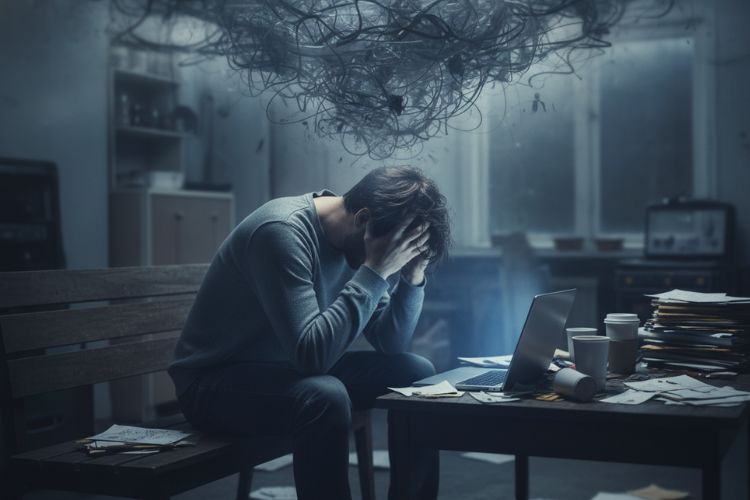
It’s normal for health anxiety about cancer to flare up. Sometimes worries are unavoidable, especially during anniversaries of diagnosis or upcoming scans. Recognise these moments and give yourself permission to feel anxious without judgment.
Reach out to trusted friends or professionals if anxiety feels too heavy. Talking openly is often more effective than trying to manage alone. You don’t have to face post-treatment anxiety on your own.
Final Words
Do you ever feel like anxiety is taking over your life even after finishing treatment? Anxiety after cancer treatment is common, but it doesn’t have to control you. Recognising post-treatment anxiety symptoms early, practising coping strategies, and leaning on support networks can make a real difference.
With patience, self-compassion, and guidance, cancer survivor anxiety can be managed. Life after treatment can be meaningful and fulfilling. You can regain confidence, find purpose, and move forward knowing that worry doesn’t define your recovery.
If you’re struggling with anxiety after cancer treatment, you don’t have to go through it alone. I Survive Cancer offers support, coaching, and a survivor community to help you regain confidence and peace of mind as you adjust to life after treatment.
FAQs
Is anxiety after cancer treatment normal?
Yes, many survivors experience worry, tension, or fear even after treatment ends. It’s a normal response to uncertainty and adjusting to life after cancer.
How can I tell if I need professional help?
If anxiety affects daily life, causes panic attacks, or disrupts sleep and concentration, it’s a good idea to talk to a therapist, counsellor, or support group.
What are simple ways to reduce post cancer anxiety at home?
Regular exercise, mindfulness or meditation, journaling, and connecting with supportive friends or survivor networks can help manage anxiety and improve overall well-being.

